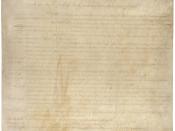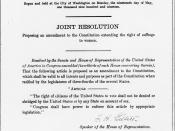The Constitutional responsibility of the press is to inform the public. The First Amendment comes into direct conflict with the rights and responsibilities of media coverage. There is a fine line between personal privacy and the publics right to know. The constitution overrides the option of privacy beside the amendment of freedom of speech or freedom of the press. Freedom of the press is to be guarded as an inalienable right of the people in a free society. Freedom of the press carries along with it the right to discuss, question and challenge the actions of our government and of our public and private institutions. Journalists hold the right to verbalize unpopular opinions and the privilege to consent with the majority.
In a hypothetical situation , a man running for president is caught in a bind where media has to decide if his private life should be published or not.
Involving media forms such as newspapers and television news.
When investigating matters in an individuals private life there is a question of fairness. The possibility of invasion of privacy is also present. If this information is printed , How will it make the person feel? In most situations the person's life being exposed would feel he is being treated unfairly. However, by not reporting such information could elude the voters knowledge of the presidential candidate. A journalist is required to report, it is there job.
When making implications about any person, the facts must be known without a doubt. The uselessness of hearsay information or a animus tip does no good on the creditability of the news. If there is potential situation developing, it would be a good idea for a journalist to watch and wait for the events to unfold , then gather the necessary facts upon gaining the...


